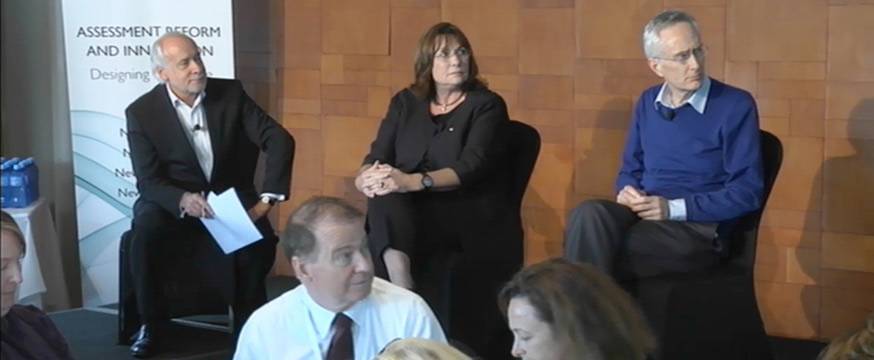
Leading thinkers deliberate assessment
Research 6 Jul 2015 3 minute readA panel of international education experts recently explored the purpose of assessment, its relevance for teachers and students, and what assessment systems will look like in the near future.
Three leading thinkers in education – Professor Geoff Masters AO, Sir Michael Barber and Dr Michele Bruniges AM – met in Sydney in May for a panel discussion held as part of the Australian Council for Education Research (ACER) Centre for Assessment Reform and Innovation Rolling Summit.
Highlights from the panel discussion, first reported in Teacher, show that the panellists are in agreement on the need for new thinking, metrics, technology and resources around assessment.
According to Professor Masters, ACER Chief Executive, the purpose of assessment is to establish and understand where learners are in their learning at the time of assessment.
‘That information then can be used as a starting point to make decisions about the next steps in the learning process [and] what kinds of learning opportunities [educators] need to provide. And all of this is so important, because we know that students in the same year of school or students at the same age are very, very different in their levels of achievement,’ said Professor Masters.
‘[Teaching is] not just a matter of delivering some pre-specified, one-size-fits-all curriculum, it’s a much more difficult job than that. It’s a matter of working to understand where individuals are in their learning – and that can be done at different degrees of diagnostic detail.’
Sir Barber, a former adviser to the Blair Government in the UK, predicts a future in which new technology, virtual learning environments and digital platforms will allow educators to combine authentic assessment and testing.
‘I think schools and teachers will use that digital technology to monitor student learning, indeed students increasingly will use it to monitor their own learning and they will be getting feedback pretty much instantly,’ said Sir Barber.
‘The schools will have the data they need to drive student performance up, to monitor progress, to tailor learning programs, to create collaborative learning environments where collaborative problem solving can be assessed … and from that, the system will be able to get the data it needs to monitor performance without asking for anything extra.’
Dr Bruniges, Secretary of the New South Wales Department of Education, noted that educators who reflect back in their teaching practice about good assessment understand that assessment is not an end point of teaching and learning, rather it informs the next steps.
‘Technology provides a wonderful pathway to get the relevance and immediate feedback for both teachers and students to ensure that they are self-monitoring and pacing what’s actually happening.
'I think we really have to turn our attention to the rate of reform that’s required today to ensure that we do have engaged students.’
Read the full article:
‘Leading thinkers in conversation’, by Jo Earp and published in Teacher, is available at < teacher.acer.edu.au >
Find out more:
Visit ACER’s Centre for Assessment Reform and Innovation for further information or to join the Rolling Summit, including through Research Conference 2015 – Learning assessments: Designing the future.
